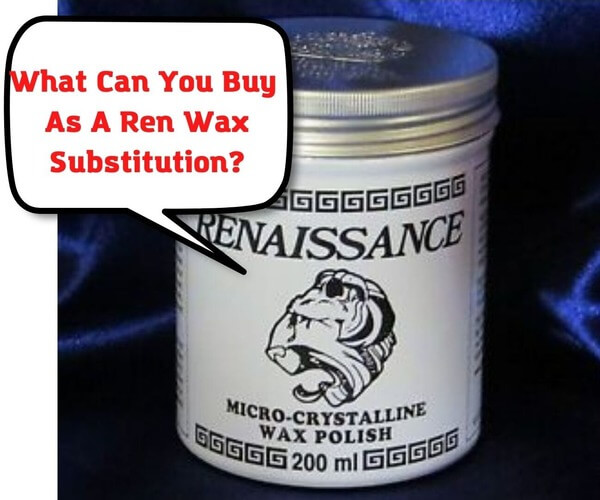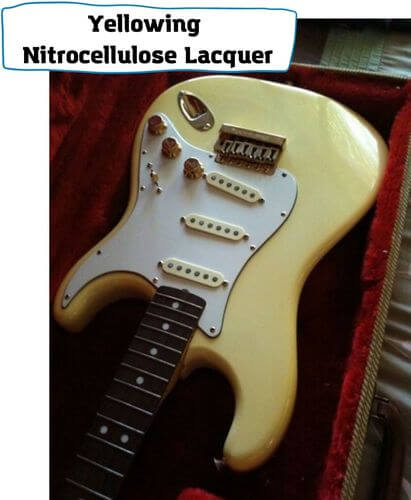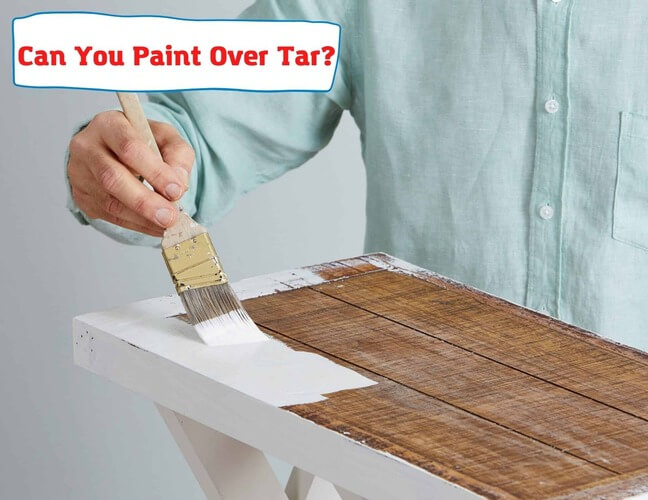Why do you think that a lot of people prefer to use Stainless Steel in their homes? Because it glitters? Because of the sound, it makes when hit? If these are your thoughts, it shows you have a wrong thought as regards the Stainless Steel.
The major reasons are because of its common characteristics which prevent it from being rusted and also make it a very tough material. A little wonder why it is used in rooms where water is likely to get spilled on it like the bathrooms and kitchens.
The term ‘Stainless’ was named in a bid to describe its feature of being resistant to heat, water (humidity), and air (humid air) which are the causes of rusts.

Since it has such great features, why is blackening it so important? Well, even though Steel is anti-corrosive, it is susceptible to damages caused by impact from other objects.
In this article, you’ll learn about how to use Vinegar as well as other methods to blacken Stainless Steel.
Black Stainless Steel
Any equipment in your home that is made with Stainless Steel will always need extra care in terms of maintenance (cleaning) because of the difference in its production procedure. This is where Black Stainless Steel comes in.
Black stainless steel differs from stainless steel physically in terms of the color that both reflect. The black stainless steel just like its name connotes reflects a darker color when compared to the stainless steel.
The rate at which Black Stainless Steel is being used by a lot of people lately is quite on the high side. Mainly because of its distinct property to conceal scratches from impact as well as its property which allows it to fit into any environment or room it is positioned irrespective of the color it is painted.
Also, the blackened stainless steel provides a shield-like coat on the surface finish of the stainless steel where it is applied. Thereby, making the surface of the steel look more attractive and distinct look from regular stainless steel.
Vinegar
You probably must have been aware or putting to use Vinegar while cooking in your kitchen. Since time passed, Vinegar had been very useful in different cooking processes like in the steeping of meat, processing of your veggies, and increasing the acidic level of any food type.
Aside from cooking, Vinegar is useful in other areas where it functions excellently. And in this article, it is clearly stated that it performs the function of blackening Stainless Steel.
How To Blacken Steel with Vinegar?
The way to get this done is to dip your stainless steel into a bowl of Vinegar so that it can get properly soaked up in the water for some hours to make the blackening process easy.
You can as well spray the vinegar on the surface of the stainless steel and just like in the first step, allow the Vinegar to get soaked up in the surface. After it has properly gotten soaked, you can go ahead to clean up the surface with a cloth.
Other Methods
1) Water and a Cloth
Water and Cloth? So basic! You may say. Anyway, as basic as using water and cloth (microfiber) seem, they are both excellent tools that will help you in the blackening of your stainless steel.
The only thing is for you to see to it that you carry out the cleaning along the grain to get a perfect blackening job.
Water is known to be a cleansing agent and the blackening of your stainless steel is no different.
2) Lye
Lye is not restricted to the cleaning and maintenance of the home alone as it is useful in the blackened of stainless steel.
Many thanks to its properties, Lye is beneficiary in not just domestic cleaning jobs as it is useful in industries too. For the sake of this article, Lye is great for the blackening of your utensils and equipment made of stainless steel.
3) Baking soda
Your baking soda is not only made for your baking only as it is helpful in domestic cleaning.
The way to get this done is to make a mixture of your baking soda and a little quantity of water to form a paste. Once this is done, rub it on the surface of your stainless steel and leave it for 25-30 minutes.
Once the time is complete, clean the surface of the steel with a soft cloth and it will come out blackened.
4) Polish Stainless Steel
To blacken your stainless steel, polishing it with an abrasive cleaner is also very effective. Just as abrasive cleaners eliminate stains, they are also useful in blackening stainless steel.
Only ensure that you use a cleaner of good quality to preserve the surface of your steel from damaging more via rusting.
5) Lemon Oil Furniture Polish
Applying lemon oil bit by bit will help blacken your stainless steel. The way to get it done is to pour your lemon oil on a soft piece of cloth.
Cleaning your stainless steel with the lemon oil on your cloth will help blacken your stainless steel and you can watch it glitter like a new one.
6) Glass Cleaner for Fingerprints
Fingerprints are stains that are easily seen on the surface of any surface steel. The only solution to clean up your fingerprints that are already there and the ones that will still be done is to blacken your steel.
Applying a glass cleaner on your stainless steel with a soft cloth will help blacken stainless steel.
That is, your glass cleaner is not just restricted to cleaning your glass alone as it also blackens stainless steel!
7) Flour
Flour? Do you mean flour for baking? Well, we’ll say a big YES to your question.
Although this procedure may seem messy, you can easily get the blackening done at your kitchen sink for your kitchen utensils (most preferred).
To get this done, properly clean your sink to take away all debris. Then, go ahead to grease your equipment or utensils. Once the grease on the surface of the utensils is no longer moist, you can go ahead to add the flour. After some minutes, clean up the flour and the dried grease from the surface and behold your newly blackened stainless steel.
So, after baking those pancakes, we’ll advise you to reserve a little of your flour for the blackening of your stainless steel.
Tips to Guide You on the Usage of Your Stainless Steel
Ensure that you do not abandon your blackened stainless steel because it has been blackened. Make sure you clean it from time to time. Else, its attractive feature will fade away.
After blackening your stainless steel, do not clean it anyhow with just any material. Doing this will cause the surface to get smudges and scratches.
For the daily cleaning of the surface of your blackened stainless steel, do not use a hard cloth but a soft one only and a mixture of soap and water. See to it that you clean little by little and exert little pressure.
Since your blackened stainless steel now has a black physical color, you can easily conceal any scratches or smudges with dark non-temporary ink (marker). This will make the scratch almost invisible unless when viewed at a very close range.
Frequently Asked Questions
- Does Vinegar Allow Steel Rust?
No. The application of Vinegar on stainless steel is what is referred to as Blackened Stainless Steel.
Vinegar, although recognized as a great recipe in the kitchen- for cooking is very much helpful in preventing rusting in stainless steel.
So, you do not have to worry about worsening the state of your already rusted stainless steel by the usage of Vinegar on its surface. Apply Vinegar and watch your steel glitter.
- Can I Darken My Stainless Steel Myself?
Of course, you can. You don’t have to pay anyone to get it done for you as it requires a Do-it-yourself process which is very easy to follow.
So, you can blacken any of your stainless-steel utensils and equipment at any time you feel the need for it without looking for extra resources as your homemade materials like Vinegar, Flour, and so on would be of great help to you.
- Are Stainless steel and Black stainless steel the same?
No, Stainless steel and Black stainless steel are certainly not the same. Black stainless steel differs from stainless steel physically in terms of the color that both reflect.
The black stainless steel just like its name connotes, reflects a darker color when compared to the stainless steel and because of its distinct property to conceal scratches from impact as well as its property which allows it to fit into any environment or room it is positioned irrespective of the color it is painted, it differs from the stainless steel.
Lastly, any equipment in your home that is made with Stainless Steel will always need extra care in terms of maintenance (cleaning) because of the difference in its production procedure.
- Will my Fingerprints Show Whenever I Touch My Blackened Stainless Steel?
No. Unlike stainless steel, blackened stainless steel helps in concealing scratches from impact, fingerprints from touch, and other defects. This benefit is one of the peculiar features of blackened stainless steel.
Conclusion
Blackening your stainless steel does not have to stress you at all as it can be done from the comfort of your home with the materials listed to be of help to you.
So, we hope this article will help you go ahead with the confidence of a pro to blacken your stainless steel and watch your steel glitter like never before.
- Can You Unmix Paint: Techniques, Consequences, Alternatives - February 23, 2024
- Does Primer Need to be Mixed? Effective Primer Application - February 22, 2024
- How to Make Old Paint Usable Again: Retrieving and Preserving Paint - February 21, 2024



